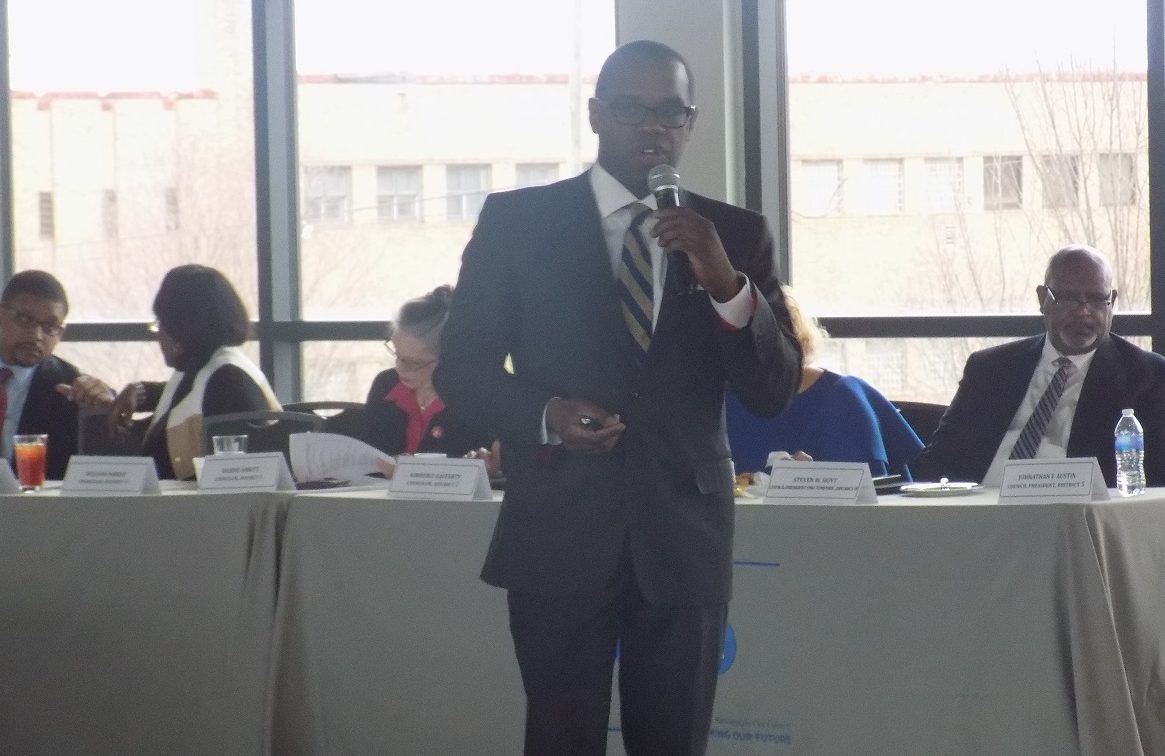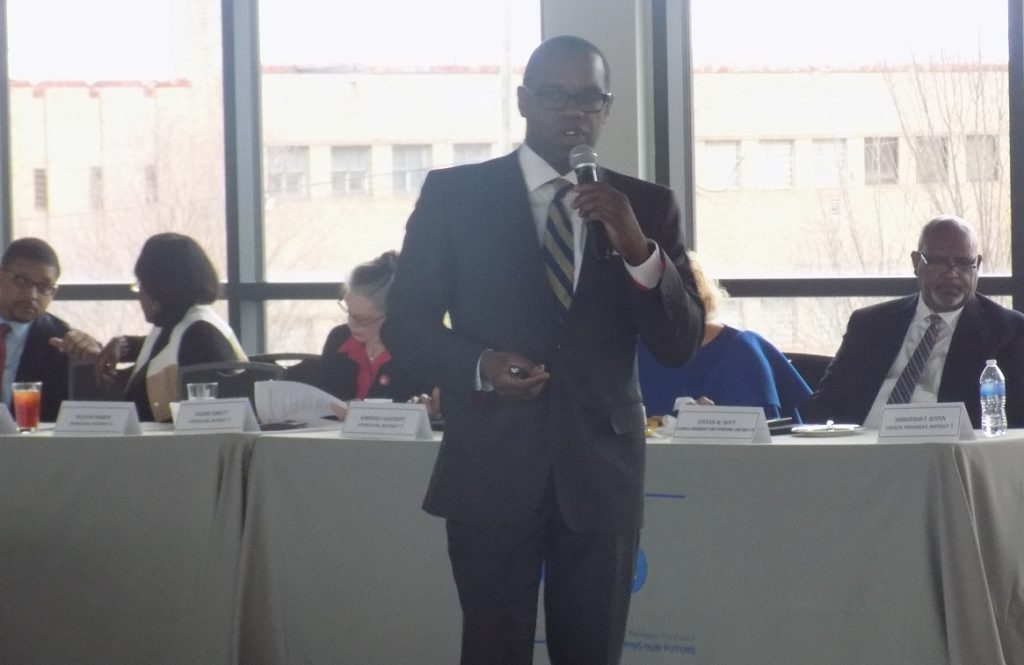
Monique Jones
The Birmingham Times

Birmingham City Council President Johnathan Austin on Tuesday urged state legislators and local elected officials to communicate and work on a “common mission” during a legislative agenda meeting at Regions Field.
“We all are in this together and we all are here to represent the people,” Austin said. “When we can’t come together and pass legislation that helps the people that we were all either elected or appointed to represent…we do know that the citizens lose.”
The council presented lawmakers with a proposed legislative agenda that included:
- Funding for K-12 and higher education that could strengthen the Birmingham City Schools, the University of Alabama-Birmingham, as well as Lawson State and Jefferson State Community Colleges
- Making permanent the Historic Preservation Tax Credits that have helped with the renovation of the Lyric Theatre, the Pizitz building, and the Thomas Jefferson Towers
- Full funding of Medicaid, to protect the stability of the city’s hospitals, and the primary care physicians and nursing homes
- Economic development incentives to make the city competitive with other major urban areas across the country in recruiting major industries
- Support for public transportation, including mass transit and railways
Some items on the legislative agenda could be taken up by the Jefferson County delegation when the Legislature convenes for its regular annual session Feb. 7.
However, none of those items can be accomplished without better communication, agreed those in attendance who included State Sen. Jabo Waggoner, R-Vestavia Hills, State Rep. John Rogers, D-Birmingham, State Rep. Rod Scott, D-Birmingham, State Rep. Jim Carns, R-Mountain Brook, Jefferson County Commissioner David Carrington and Birmingham City Council members Stephen Hoyt and Valerie Abbott.
Birmingham Councilwoman LaShunda Scales said communication was lacking between the city council and state legislators who represent Birmingham and Jefferson County.
“Some of it being perception, some of it may just be politics,” she said. “What can we do to foster a healthy relationship so you’ll know the spirit of the intent of the council?”
Waggoner agreed.
“I read more about how you all feel about me in the media than I do one-on-one,” he told the council members. “I don’t know if you all have ever been in my office in Montgomery except one or two times.”
He urged the council to call him and visit him in Montgomery to strengthen their relationship.
Among the council’s priorities is funding to train high school students for employment and connect them with employers throughout the state.
“Every child that graduates from high school from Birmingham or anywhere across this country is not going to go to college,” Austin said. “We have an opportunity here in the state of Alabama . . . we have Mercedes and all these other manufacturers that continue to grow and expand. We need to be able to connect our students who are not going to college when they graduate, get them in a training program early while they are still in school, and then have them gainfully employed.”
Austin acknowledged the disagreements between elected officials.
“There is no question, significant differences exist between the Council and a few elected officials outside of Birmingham,” he said. “Quite frankly, I was disappointed in the patronizing tone of a letter that the Council recently received from a member of the Jefferson County Commission. Still, it is incumbent upon us that we look past that and focus on the big picture. That means we need to carry the message that a growing Birmingham is good for everyone—but everyone has a responsibility in making that a reality.”




